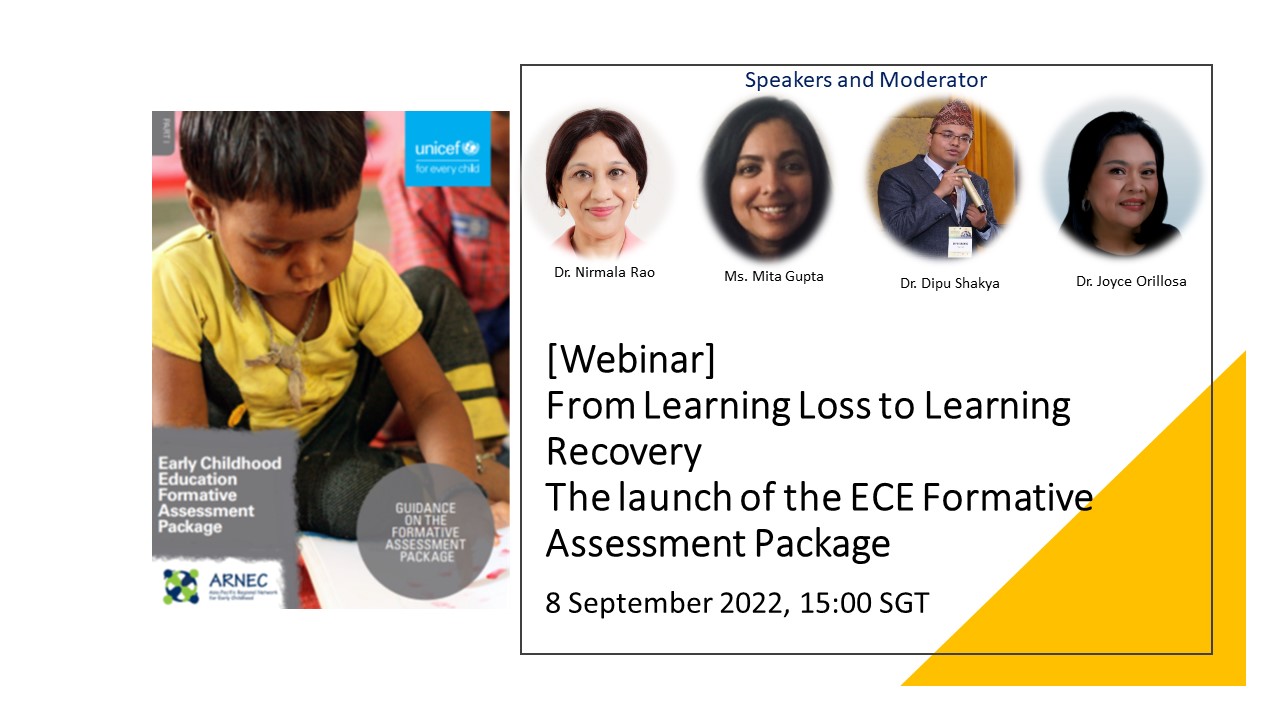[Webinar] From Learning Loss to Learning Recovery
When : 8th September 2022
|Time : 11:00pm - 8:30pm
|Moderator :
|Advocacy :
Panelists :
Description
About the event
The launch of the ECE Formative Assessment Package
fter almost two years of closure due to the COVID-19 pandemic, schools, preschools and early childhood education (ECE) centres have begun to reopen across South Asia. Can we even imagine or appreciate the extent to which classrooms reflect diversity of learning compared to the pre-COVID-19 context? Can we estimate the extent to which young children (aged 3 to 6 years) have gained or lost skills that are foundational to their later development and learning?
To promote early learning and development, address learning loss and to support developmentally appropriate teaching and learning of preschool-aged children (between 3 to 5/6 years of age), the UNICEF Regional Office for South Asia (ROSA), in collaboration with the Asia- Pacific Regional Network for Early Childhood (ARNEC) have developed an ECE formative assessment package to support learning at preschools/primary schools and at home. The package is designed to be implemented across South Asia and beyond and for use in diverse contexts for supporting young children’s learning and development. As a result, the package puts strong emphasis on the process of cultural adaptation and alignment with country’s Early Learning and Development Standards (ELDS) and local priorities.
In this context, this webinar will focus on looking at the importance of learning recovery for the youngest children, how formative assessment can support this, and present the Formative Assessment Package, its components and usage along with the requirements for contextualization.
The webinar objectives are as follows:
-
Discuss the importance of learning recovery for the youngest children in COVID-19 and beyond, and how formative assessment can support this
-
Present an overview of the Formative Assessment Package for Preschool aged children, including its significance, target group and context of using the package.
-
Get familiar with the tools (in classrooms/centres and at home) in the package and understand how these tools can promote developmentally appropriate practices by building an understanding of the continuum of each competency area in which, a child goes through different levels/steps.
-
Reflect on how to contextualize the tool for a specific country context in line with its national standards and priorities for children’s learning and development.
Click here for more details.
